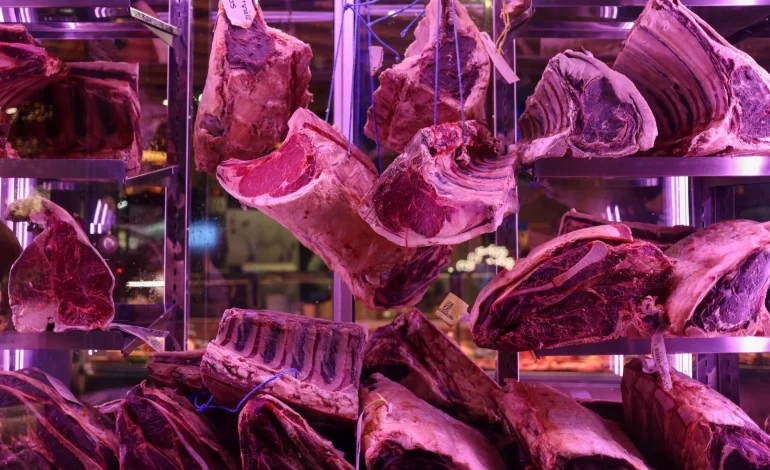China’s Ministry of Commerce announced on Friday the start of an investigation into beef imports, a move that could have significant repercussions for major exporters such as Brazil, Argentina, and Australia, Bloomberg reports.
The probe will examine whether a surge in overseas beef shipments has negatively impacted China’s domestic industry.
The investigation, initiated at the request of domestic industry associations, is expected to conclude within eight months, though an extension is possible under special circumstances, according to a statement published on the ministry’s website. The inquiry comes as Chinese beef producers are reportedly struggling with substantial losses due to oversupply, weak domestic demand, and a subsequent plunge in local prices to multi-year lows.
According to petitions from animal husbandry sector groups representing several of China’s top producing regions, imports of beef surged significantly between 2019 and mid-2024, causing a blow to the domestic industry. The investigation will determine if safeguard measures are needed, potentially resulting in increased tariffs or import restrictions.
The move is particularly concerning for Brazil, which accounts for nearly half of China’s total beef imports. While Brazil has been strengthening its ties with Beijing, it has also expressed concerns about a perceived flood of cheap imports from China. This trade friction was recently highlighted by Brazil’s imposition of new tariffs on various Chinese and other Asian products in October, including increased duties on fiber optics, cables, and iron and steel products.
Past investigations by China against other countries have resulted in significant trade penalties. In 2020, China imposed anti-dumping duties on Australian barley as diplomatic tensions between the two countries escalated, demonstrating the potential for such probes to become tools of trade policy.









